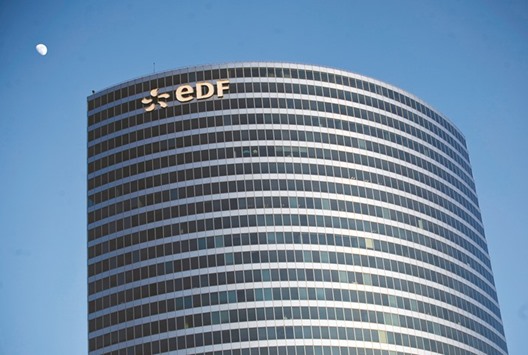French utility EDF pledged yesterday to deliver positive cash flow next year before it has to invest in upgrading its ageing French nuclear plants and building new reactors in Britain.
The utility, which is 85% state-owned, made the commitment as it posted a 6.7% fall in 2016 core earnings to €16.41bn following the temporary closure of about a third of its French reactors last year for safety checks.
EDF said core earnings would fall further to €13.7bn-€14.3bn this year but it expects 2018 earnings would then recover to at least €15.2bn ($16.13bn).
“The year 2017 will still be difficult, but we should hit the bottom of the cycle and 2018, I commit to that, should be the year of the rebound,” Chief Executive Jean-Bernard Levy said.
Levy said the higher 2018 core earnings target should be achievable thanks to higher power prices, further cost cuts and the gradual return to a normal nuclear output in France.
This year, French nuclear power production will be capped by planned maintenance and the continued outages of EDF’s Bugey 5, Fessenheim 2, Gravelines 5 and Paluel 2 reactors, which have been shut for months due to safety and technical problems.
EDF shares, down 2%, were among top losers on the Paris bourse.
They are down 20% over the past six months, making them the second-worst performers in the Thomson Reuters Europe utility index.
EDF has been wrestling with heavy debts and has had to borrow just to pay dividends for several years. It had negative 2016 cash flow of €1.6bn, and €2.1bn in 2015.
The firm noted that its forecast for positive 2018 cash flow after dividends did not include costs related to its Linky smartmeter rollout, new developments and asset sales, and excluded the advance on the interim dividend for that year.
Levy said that cost savings, asset sales, lower investments and a state-funded capital injection will boost EDF’s finances by next year. EDF and its Chinese partner CGN need to finance the £18bn (€21bn) build of two nuclear reactors in Hinkley Point, Britain and it also faces a €50bn upgrade of its French nuclear stations over the next decade.
It also needs to spend €5bn on smart meters and billions more buying and restructuring the nuclear reactor unit of fellow state-owned company Areva.
Levy declined comment on Japan’s Toshiba, which yesterday said it expected to book a $6.3bn hit to Westinghouse and postponed its 2016 results by a month as auditors try to determine its US nuclear business’ liabilities.
Westinghouse’s AP1000 reactor is the main competitor for the Areva EPR third-generation reactor that EDF plans in Britain.
Such reactors have improved safety features, but are more costly to build.
Delays mean none have yet been connected to the grid.
While Westinghouse’ problems ought to benefit EDF-Areva, their chances of winning new export contracts are slim due to new safety requirements following the 2011 Fukushima disaster, competition from Chinese, Russian and Korean reactor makers and ever-cheaper renewables, industry sources say.
EDF said its planned capital raising should be launched before the end of March, market conditions permitting, after its board approved a €4bn increase on Monday.
The French state is set to subscribe for €3bn. It is planning a share dividend for the second year running, to which the state will again subscribe. By taking this option last year it left an extra €1.8bn in EDF’s coffers.
EDF said it plans to distribute €2.1bn in dividends on its 2016 earnings, but the dividend per share will not be announced until the capital increase is launched.
EDF’s 2016 revenues fell 5.1% to €71.20bn, while net income rose 140% to €2.85bn due to lower impairment losses in 2016, and the extension to 50 years of the accounting depreciation period of some of its nuclear plants.

EDF headquarters is seen in Paris. The French utility pledged yesterday to deliver positive cash flow next year before it has to invest in upgrading its ageing French nuclear plants and building new reactors in Britain. Gazprom eyeing rival TAP pipeline
